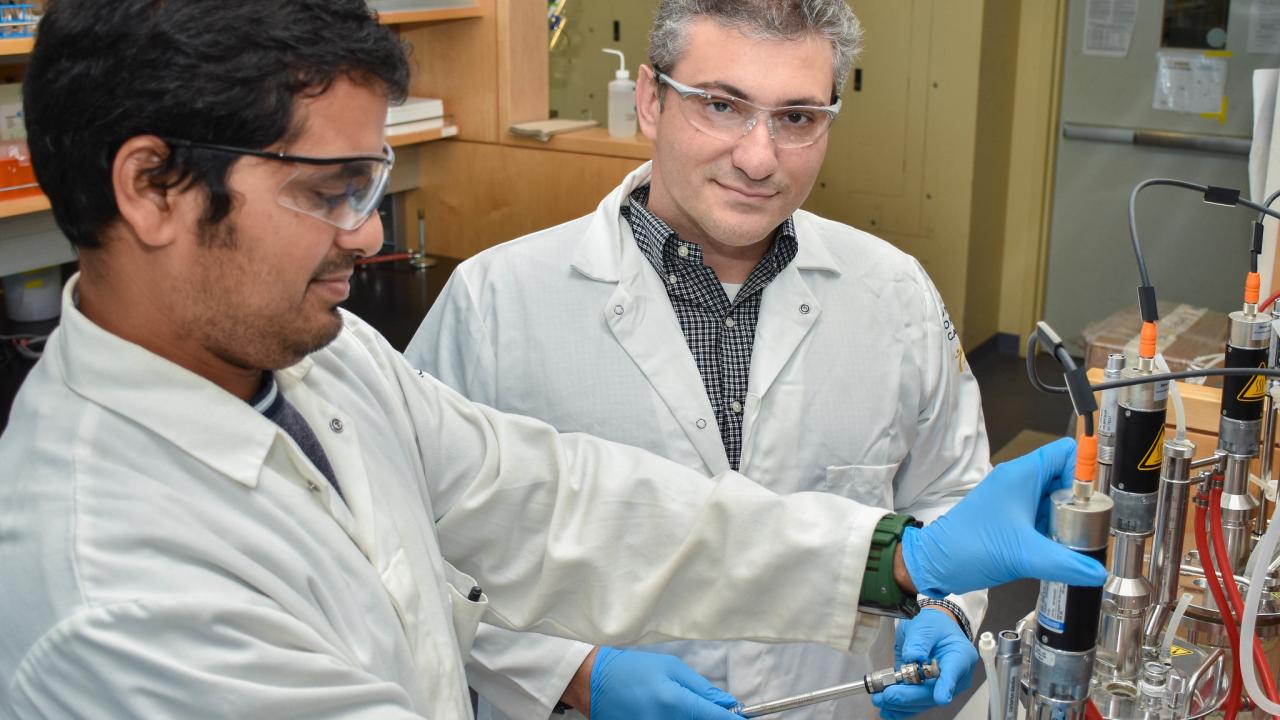Technology Commercialization Proof-of -Concept Grants Available
VENTURE CATALYST PROOF-OF-CONCEPT PROGRAMS
Venture Catalyst manages three proof-of-concept programs, which provide funding and resources to translate basic UC Davis research with commercial potential by demonstrating proof-of-concept and establishing market viability. These programs also help develop an innovative and entrepreneurial culture that extends the benefits of UC Davis research activities beyond the boundaries of the university.
- Science Translation & Innovative Research (STAIR™) Grant
- Food Systems Innovation Grant
- Data, Informatics & Application Launch (DIAL™) Grant
Key features of the proof-of-concept programs include:
- targeted funding to bridge the gap between basic research and early-stage commercialization efforts,
- project work conducted over a 12-month period,
- Review Committee consisting of industry representatives with corporate, investor, and entrepreneurial expertise,
- feedback and guidance on commercialization from members of the Review Committee and the Venture Catalyst team, and
- structured entrepreneurial training.
Over the past seven cycles, the proof-of-concept programs have awarded over $2.2 million of funding to 49 projects. These projects have resulted in 22 intellectual property agreements, including 16 startups launched around foundational technologies, and have been able to attract roughly $33 million of follow-on funding. See the list of previous awardees here and view the executive summary for the 2019-20 cycle here.
Venture Catalyst will begin accepting application for the eighth cycle of the proof-of-concept programs on January 19, 2021 with an application deadline of March 3, 2021 at 5:00 pm PST. Applications for all proof-of-concept programs can be submitted through Office of Research’s InfoReady grant application platform (Kerberos login required). The direct links to each grant are as follows:
Potential applicants can view a recorded information session for the 2020-21 cycle. If you would like to request an overview presentation and/or a Q&A session for your department or unit, please email [email protected].
For the STAIR and DIAL Grant programs, Venture Catalyst has engaged campus and industry partners to expand potential funding available to particular technologies and projects through the program. Partners include Elanco, the UC Davis College of Biological Sciences, the UC Davis College of Letters & Science, the UC Davis School of Medicine, and the UC Davis School of Veterinary Medicine. See additional details on types of funding and areas of interest in the program materials below.
Aspect
Technology Focus
IP Consideration
Project Budget
Funding Available for 2020-21 Cycle
Download Program Materials for 2020-21 Cycle
STAIR Grant
Broad
Patent potential
Up to $50,000
$250,000*
STAIR Grant Program Announcement
Food Systems Innovation Grant
Global nutrition and food systems
Patent potential
Up to $50,000
$50,000**
Food Systems Innovation Grant Program Announcement
Food Systems Innovation Grant RFP
Food Systems Innovation Grant Application Form
Food Systems Grant Application Instructions
Food Systems Innovation Grant Invitation to Self-Identify Form
DIAL Grant
Data, information science, and software
Copyright or patent potential
Up to $20,000
$40,000
DIAL Grant Program Announcement
*Supplemental funding available from campus and industry partners
**All eligible Food Systems Innovation Grant applicants will also be reviewed through the STAIR Grant program
Email questions about any of the proof-of-concept grant programs to [email protected].

